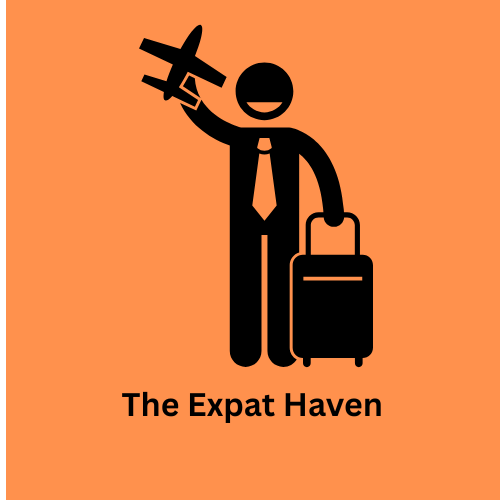
Jordan Peterson's Transition: A Move or a Misstep?
Jordan Peterson's recent decision to relocate from Canada to the United States has stirred quite a controversy and raised crucial questions about freedom, safety, and the true essence of pursuing a better life. While some see his migration as a necessary stride towards personal and professional liberation, others dissect the implications of this significant move. Particularly for thousands of individuals similar to Peterson, including retirees and affluent citizens contemplating where to live amid inflation and pandemic uncertainties, understanding the real factors driving such decisions becomes paramount.
In 'My Reaction to Jordan Peterson's Move to the US,' the discussion dives into profound insights regarding freedom, safety, and the complexities of relocation, prompting us to break down these topics further.
Understanding the Impetus Behind the Move
Peterson highlighted dissatisfaction with how he was treated in Canada, citing issues concerning professional licensing that seemed overly punitive. This resonates with many individuals—especially those in their 50s and above—who may contemplate relocating for a perceived sense of fairness. However, evaluating whether the United States genuinely offers a stronger bastion of freedom than Canada leads to diverse opinions.
Freedom of Speech: A Double-Edged Sword
The notion that freedom of speech is unequivocally guaranteed in the United States stands questioned. Peterson's concerns about being penalized for his opinions in Canada are reflective of broader anxieties by many who fear for their freedom in an increasingly polarized society. However, the reality is that the perception of freedom can often be misleading. Recent legislative discussions and public discourse suggest that speech is often treated with caveats, whether in Canada or the U.S.
While some believe that Canada is becoming totalitarian, others argue that the United States has its own systemic constraints on what can be said publicly, thus blurring the line of where true freedom exists.
The Myth of American Safety
Peterson's reference to safety as a primary motivating factor for his move is also merit for analysis. While émigrés often believe moving to the U.S. functions as an escape to a safer haven, statistical data suggests otherwise. With the U.S. ranking lower on safety indices compared to some other nations, it's important to recognize that safety varies drastically within regions and cities. Furthermore, comparing neighborhood safety in Canada versus areas in the U.S. illustrates that universal safety guarantees are illusions.
As retirees seek safety in their golden years, understanding how they perceive safety in potential new homes, primarily driven by emotional biases, is essential. Ultimately, where an individual feels secure may not align with statistical realities.
The Financial Landscape: Taxes and Living Costs
Financial security greatly influences retirement decisions. Peterson's mention of lower taxes appeals directly to high-net-worth individuals who are tired of Canada’s tax system. For many baby boomers contemplating their future post-retirement, it’s crucial to ask: where does one receive the best value for their hard-earned assets? While the allure of moving to lower-tax regions like the U.S. is tantalizing, exploring global options—countries like Portugal or Malaysia that blend lower costs with substantial benefits—may yield better long-term results.
Peterson's shift emphasizes the growing trend where affluent individuals no longer view the U.S. as the only paradise of wealth. The concept of going where one is treated best—be it in lifestyle, taxes, or personal freedom—should significantly influence decisions across demographics.
Exploring Underappreciated Opportunities Globally
Many may romanticize life in the United States, much like Peterson does. Yet, overlooking lesser-known alternatives is a disservice to one's aspirations. Countries previously deemed less appealing now emerge as potential alternatives for freedom-loving individuals, particularly retirees looking for vibrant lifestyles without the burdensome weight of high taxation. Malaysia, Georgia, and even Portugal provide rich and diverse environments that could offer a far better fit than the mythic allure of the American Dream.
Final Thoughts: The Case for Informed Decision-Making
The complexities surrounding Jordan Peterson’s move invite readers to reevaluate what their own motivations might be in considering relocation. Is it solely about escaping a perceived tyranny, or is it about seeking a holistic lifestyle that champions freedom, security, and financial prosperity? By critically assessing personal motivations and exploring global opportunities, individuals may find avenues truly suited to their aspirations.
As you weigh the options of where to retire or settle down, consider not just the surface-level advantages but also how these decisions align with your unique values and existing narratives of safety and freedom. Explore alternatives, look beyond the name brand, and make the informed choices that will truly enrich your life's journey.
 Add Row
Add Row  Add
Add 




 Add Row
Add Row  Add
Add 

Write A Comment